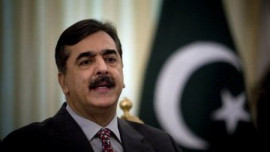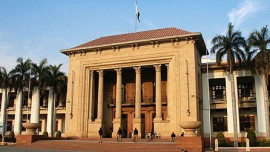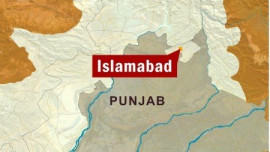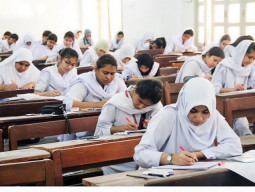
The federal government has moved a bill for changes in the existing 1997 anti-terror laws with the objective of tightening the noose around terrorists. Some of the highlights of the 2010 bill include the capacity to intercept telecommunication and depriving a terrorist of the right to a passport, seek financial loan, get credit cards, etc. The proposed amendments might reflect the government’s seriousness to fight terrorism, but is it really so?
How does the ministry of interior plan to determine if a particular person is a terrorist or linked to such activities, especially if parts of the government go around hiding some jihadi/terrorist elements? We know that members of some of the banned organisations have acquired land and own immoveable property. Police has information about such dubious ownership and even have some information about sources of funding for procurement of immoveable assets. However, they cannot do much, unless there are clear instructions from the top.
It’s fashionable to make bulk arrests after every major terrorist attack. The police pick up people with names in the notorious fourth schedule list which normally includes names of people suspected of links with terrorist organisations or are the Afghan-trained boys. The latter category pertains to militants who were trained in Afghanistan or took part in the first Afghan war of the 1980s. However, the arrests are generally useless because often there is no immediate evidence linking these men with a particular case. Instead of picking up these men every time there is a crisis, it makes greater sense to plan activities for their ideological and social re-integration.
The state’s police do not have sufficient capacity to collect evidence presentable in a court of law. No wonder the Lashkar-i-Jhangvi leader went scot-free and wasn’t convicted in a single case despite his involvement in hundreds of brutal murders. The government has no witness protection programme, nor are its officials trained to collect evidence. It’s almost comical to see senior officers go to foreign countries for training which does not necessarily add to the police department’s capacity. In our socio-political environment a DIG level police officer doing K-9 dog training in the US does not really make any sense. It’s the officials on the frontline who require better training and attention as he is the man who faces the music rather than the DIG sahib sitting in his heavily barricaded office. There is an urgent need for police reforms that ensure greater accountability of the police but also improvement in human resources and other infrastructure. A police force, which is expected to do a lot of things from protecting VIPs and dealing with local crime to terrorism, is over-stretched.
Technically speaking, an individual or a group cannot be termed as terrorist without formal conviction. Or will it be the discretion of the interior ministry to condemn a person a terrorist? The same applies to interception of phone calls. It seems that the government wants to justify the tapping of phones by military intelligence agencies that already listen in. The actual problem with intercepting telecommunication is not that government agencies don’t have the authority but that law enforcement agencies don’t have the capability to intercept telecommunication and military intelligence agencies don’t help the police in doing so when required.
Much needs to be done to share facilities and information. The latest botched effort in this regard pertains to establishing of the National Counter-Terrorism Authority (NACTA). The organisation was being set up as a central point for intelligence gathering and handshaking amongst various intelligence organisations, and to produce a counter-terrorism strategy that would also comprise of interaction with media and developing research and analysis tools. Its former head Tariq Pervez, who has a great career in the police, resigned recently in protest against the interior ministry dragging its feet. Now, NACTA is a non-starter due to pressures from within the interior ministry and from the intelligence community. The organisation could have played a major role in developing a counter-narrative for fighting terrorism and radicalism in the country. Needless to say, Pakistan’s biggest problem is not lack of laws but dearth of vision and the will to implement legislation. Counter-terrorism cannot work without demobilisation, de-radicalisation and re-integration.
Published in The Express Tribune, August 1st, 2010.






















































COMMENTS (8)
Comments are moderated and generally will be posted if they are on-topic and not abusive.
For more information, please see our Comments FAQ